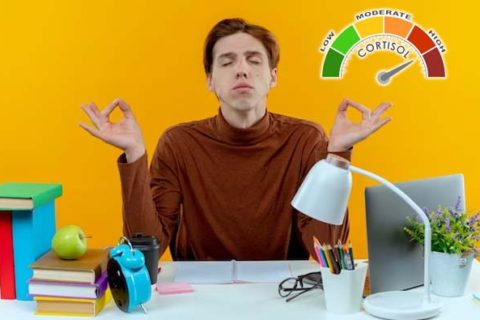Depression is a persistent sadness that interferes with the person’s well-being and life (NIH, 2019, WHO, 2020). Due to the high level of stress caused by COVID-19 and many campaigns regarding mental health, many people are eventually starting to realize the importance of mental health. Well, here, we are going to discuss mild depression, signs, symptoms, and treatments.
Recognizing Mild Depression
A person with mild depression will have a low mood and several other symptoms of depression, however, these symptoms tend to be mild, in contrast to major depressive disorder.
Changes in mood that do not stop can be a sign of depression, and will be a condition to worry about. Early intervention can assist prevent serious complications from arising.
The National Institute of Mental Health (NIMH) states that changes in mood and behavior can be signs of mild depression. Several other common symptoms are:
-
- Easy to get angry
- Tired, not like usual
- Feeling helpless
- Feeling guilty or worthless
- Feeling very sad
- Difficulty to focus
- Feeling unmotivated
- Want to be left alone
- Having a little pain that cannot be explained
- Loss of empathy for other people
- Move or speak slowly
- Thinking of death or suicide
- Changes in sleep patterns
- Eat less or more than usual
- Changes in the use of alcohol, cigarettes, or drugs
- Changes related to work or school

Symptoms of Mild and Moderate Depression
According to the American Psychiatric Association (APA), the symptoms of mild or moderate depression are similar to those of major depression, but only milder.
A person with mild or moderate depression may feel:
-
- Sadness
- Loss of appetite
- Insomnia
- Feeling no energy
- Hard to concentrate
Most people with mild depression can manage these symptoms, however, there are possible side effects on their social or work life. While other people may not be aware of the symptoms of mild depression, others can still hazard people with mild depression.
Also, symptoms of mild depression can appear each time the depression recurs. This is one of the warning signs of possible major depression. A person who is experiencing new or worsening symptoms must seek medical or psychological help as soon as possible.
Types of Depression
The National Institute of Mental Health (NIMH) also lists the common types of depression. Various symptoms are able to arise from mild or severe depression of any type.
- Persistent Depressive Disorder (Dysthymia)
A person can be diagnosed with this Persistent Depressive disorder if the symptoms of depression last for at least two years. There will be times when the sufferers experience mild symptoms, however, occasionally, the sufferers also experience severe symptoms that indicate major depression.
- Seasonal Affective Disorder (SAD)
Usually, this disturbance is likely to occur during the shorter days of fall and winter. It is possible that a lack of sunlight and changes in sleep patterns contribute to this Seasonal Affective Disorder (SAD) disorder. Generally, people who suffer from this disorder are going to withdraw from society, gain weight, and sleep more in winter.
- Perinatal and Postpartum Depression
The symptoms may appear during and/or after delivery. In contrast to the “baby blues”, these disorders may last for weeks to some years. Postpartum depression involves extreme sadness, anxiety, and fatigue. These symptoms make it difficult for the parents to take care of their babies.
- Bipolar Depression
A person with bipolar disorder will experience changes in his/her mood. It is possible that they have symptoms of depression before or after their mood rises. When their mood rises, then they are going to experience a spike in energy and their activity is high.
- Premenstrual Dysphoric Disorder
This Premenstrual Dysphoric disorder is like PMS, but more severe. Several of the symptoms include being very irritable, anxious, depressed which lasts for one to two weeks before two or three days after menstruation starts.
Treatment for Patients with Mild Depression
If a person experiences a low mood for two weeks or more, then there is a possibility that he/she has depression. In a situation like this, a doctor can help that person.
When helping you, doctors will ask:
-
- Symptoms you are experiencing
- Medical records
- Routine treatment
- Work habits and lifestyle
- Family medical record
Also, it is possible that they are going to perform a physical examination and several tests to rule out medical causes.
Usually, a doctor will use various criteria to diagnose depression and various mental illnesses. Then, a specialist will diagnose the person with major depressive disorder if they have had five or more symptoms for two weeks or more.
The symptoms include:
-
- Frequently his mood is depressed
- Diminished interest in activities you usually enjoy
- Significant changes in weight or appetite
- Difficulty sleeping, or often waking during sleep
- Too much sleep
- A feeling of restlessness that is visible to others
- Fatigue or energy is often low
- Feeling worthless or guilty
- Difficulty thinking, concentrating, or making decisions
- Thinking of death or suicide
Online Test
There are lots of online tests that claim to identify depression. But we suggest you use the official and guaranteed test. For your information, the PHQ-9 Test uses professional diagnostic criteria and has nine questions. Doctors frequently use this to identify depression.
If you feel uncomfortable talking to a doctor, we suggest you take this test online especially with the current state of COVID-19.
If the results show that the person has depression, then she or he will need to make an appointment to meet with a licensed professional to confirm the diagnosis, and proceed with a discussion of the next steps.
Lifestyle Tips
People with mild depression can ask their doctor for medication, however, they may want to start with lifestyle changes. The experts have suggested that change the following lifestyle can help:
-
- Diet
- Level and type of sport
- Recreational activities which offer social interaction and distraction
- Music therapy
- Relaxation and meditation
- Sleep habits
- Contact with other people, especially those who can offer emotional support
- Interact with wild or pet animals
- Reduce alcohol and cigarette consumption
Scientists have strong evidence to support lifestyle changes such as exercise and sleep. But more studies are required to confirm other factors. Some studies have already found that a diet which focuses on fresh foods and unprocessed (organic) foods is better than a western diet.
A 2015 study discovered that people with depression feel less bored, have better moods, lower stress levels, and lower heart rates. Also, there is a study suggesting changes to the workplace to assist people suffering from depression due to job stress.
If the above does not help, they are going to be asked to consider other treatments.
Treatment Options
Generally, medical treatment for depression has a combination of medication and counseling or talking therapy. So, let us explain what talking therapy is, and how to help people with depression.
Talking Therapy
In a series of patient sessions, they are going to work with a counselor to identify the cause of depression and work out a solution together.
Apparently, there are various therapies for depression, such as:
-
- Cognitive-Behavioral Therapy (CBT)
Cognitive-Behavioral Therapy will help people with natural depression understand how thoughts influence actions. Also, this knowledge can help change unhelpful lifestyles. - Guided Self-Help
Formed as an online course or guide from a therapist, this treatment provides people with tools to help them make decisions. - Behavioral Activation
Sufferers are going to learn easy and practical steps which can help them engage in activities and enjoy life as usual. - Interpersonal Therapy
This therapy helps a person discover more effective methods to manage relationships. - Counseling for Depression
This therapy invites people with depression to explore why depression exists and the ways to overcome it.
- Cognitive-Behavioral Therapy (CBT)
If you want to use the services of a therapist, look for those who:
-
- Have experience and qualifications relevant to the person’s needs.
- Have a predetermined plan and timeframe for treatment.
- Able to explain the approach used and the reasons behind it.
- Have a professional license to practice psychotherapy.
Drugs
A doctor or pharmacist is able to prescribe medicines which can be used in addition to counseling if the previous ways have not helped. According to the National Institute of Mental Health (NIMH), drugs, such as antidepressants, can treat depression. Several common antidepressants include citalopram (Celexa) and fluoxetine (Prozac). Usually, these drugs can only be prescribed by a psychiatrist.
Who Can Be Depressed?
According to a survey conducted by the National Institute of Mental Health (NIMH) in 2017, there are 17.3 million adults in the United States who have already experienced at least one episode of depression. Depression can affect anyone, however, the National Institute of Mental Health (NIMH) said that people are more at risk if they:
-
- Have a history of depression.
- Have experienced trauma or stress.
- Have experienced drastic life changes.
- Have an incurable disease.
According to the UK’s National Health Service, drug and alcohol use also contribute to depression.
Conclusion
If you have or know that someone is suffering from depression, we highly suggest seeking aid. Usually, aid in the early stages will be able to prevent depressive symptoms from getting worse. Occasionally, the first step is the most difficult. Change your lifestyle and do that routinely. However, if that does not help, then you are able to consider counseling that comes with medication. Search for aid immediately if someone has thoughts of self-harm, suicide, or the desire to harm others.
Most insurers are going to pay for treatment for depression including psychotherapy and medication as long as the person seeking aid uses the services of a licensed mental health professional. But it is still advisable to check your insurance for more detailed information.

A bookworm and researcher especially related to law and citizenship education. I spend time every day in front of the internet and the campus library.





